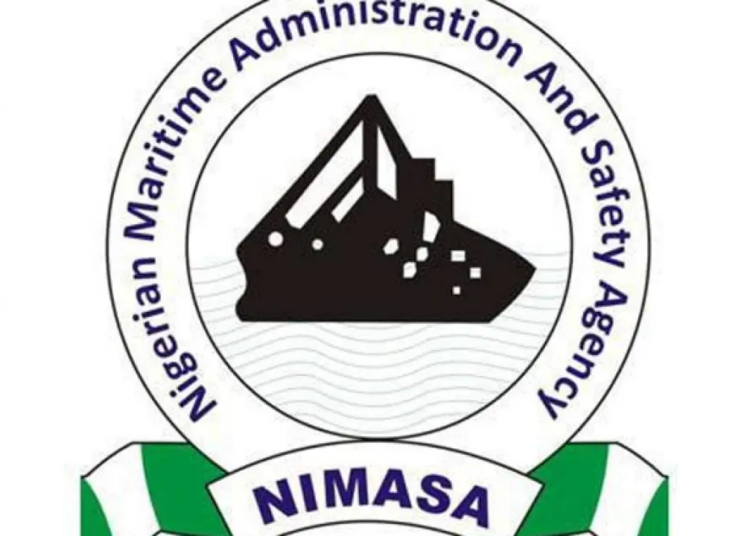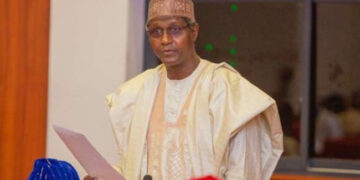Members of the House of Representatives expressed shock at the weekend as the Nigerian Maritime Administration and Safety Agency (NIMASA) admitted selling 82 vehicles for N5.8 million in 12 years.
NIMASA executive director, Chudi Offodile who revealed this at the resumption of the Committee investigating the disposal of public property by the Agencies between 2010 and 2022, chaired by Hon. Julius Ihonvbere said due process was followed.
Some documents presented by the agency obtained showed that Peugeot Expert Ambulance with market value of N200,000 was sold at forced liquidation/auction value of N95,000; Honda Civic Saloon Car with market value of N170,000 was sold at N76,500; Toyota Hilux (Grounded) with market value of N300,000 was sold at N140,000; another Toyota Hilux (Accidental) with market value of N200,000 was sold at N96,000 while another Toyota Hilux (Grounded) with market value of N250,000 was sold at N115,000.
Also, two units of Toyota Hilux which was at the time of inspection in the custody of Carbotage Consultant in Lagos put at N1 million market value, was sold at N470,000 each forced liquidation/auction value; Honda Civic put at N210,000 was sold at N95,000; Honda City put at N190,000 market value was sold at N80,000; among others.
Furthermore, at NIMASA office in Abuja, a Toyota Hilux put at N500,000 market value was sold at N245,000; Toyota Avensis put at N300,000 market value was sold at N145,000; Toyota Corolla put at N300,000 market value was sold at N147,000; two units of Honda Civic put at N90,000 market value were sold at N30,000 each; among others.
Some lawmakers who spoke during the investigative hearing, demanded for documentary evidence of funds remitted into the CRF account as provided by extant provisions of the Procurement Act, Proceed of Crimes Act, and other known legislations or financial regulations.
The NIMASA official, Offodile feigned ignorance of the provisions of the Public Procurement Act, 2007 on the remittance of the funds generated from the sale of public assets but said the proceed of sales was paid by the Auctioneers into the agency’s coffers
The Committee’s chairman and House leader, Ihonvbere expressed surprise that most of the vehicles displayed in the document presented to the panel did not appear old or not in good condition.
He said: “Looking at them (pictures of vehicles captured in the documents), some of them are looking new,” adding that for Nigerians, a 13 year old Toyota Hilux is not old.”
He expressed concern over the rationale behind the placement of an advert on the 29th March, 2022 calling for a public auction of NIMASA vehicles and sale of all the vehicles on the 30th March, 2022 through forced liquidation/auction.
Ihonvbere said the move leaves lawmakers with the impression that it was a pre-arrangement, stressing that the process contravened the extant Public Procurement Act to dispose of public assets within the duration of 24 hours.
He disclosed that the Ad-hoc Committee is in custody of petitions against NIMASA that the vehicles were sold to some officials and staff of the Agency, saying the auctioneers engaged by the agency were merely hired to rubber stamp the fictitious insider trading.
Consequently, the Committee, requested for list of all the auctioneers as well as beneficiaries of the vehicles, the original cost of vehicles and invoices, letter of contract awards for auctioning of the assets to the Auctioneers; relevant approvals obtained from Federal Ministry of Works & Housing as well as Bureau of Public Procurement (BPP).
Similarly, the panel grilled Sokoto River Basins Authority over indiscriminate sale of public assets to management of the agency in breach of extant Public Procurement Act, at ridiculous prices.
Ruling, Ihonvbere directed the NIMASA and Sokoto River Basin representatives to provide relevant documents that will aid the ongoing investigation.
He quoted the multilateral as saying, “The lack of adequate digital and financial infrastructure and processes to support a swift transition to a cashless economy— coupled with the fact that only 40 per cent of adults have a bank account—further exacerbated the situation. The cash shortage resulted in a black market for new notes, inflating overall transaction costs.”
We’ve got the edge. Get real-time reports, breaking scoops, and exclusive angles delivered straight to your phone. Don’t settle for stale news. Join LEADERSHIP NEWS on WhatsApp for 24/7 updates →
Join Our WhatsApp Channel










